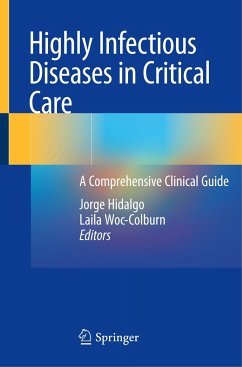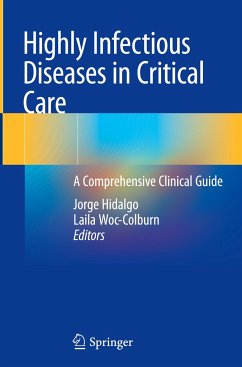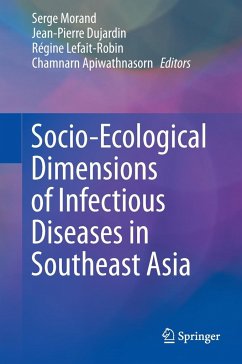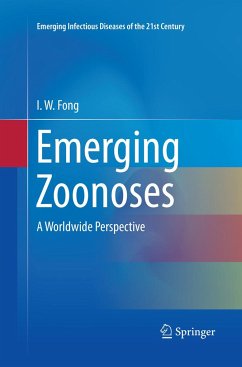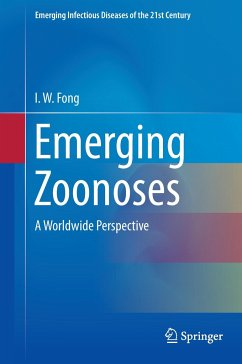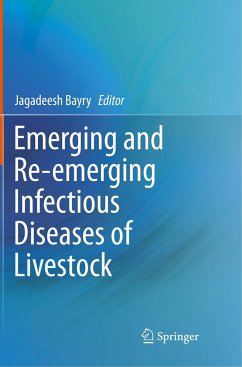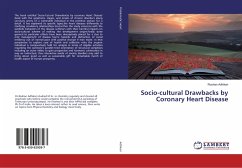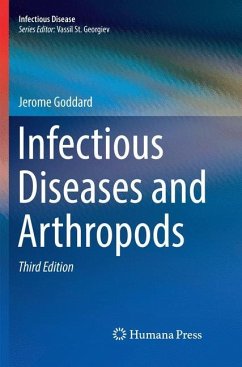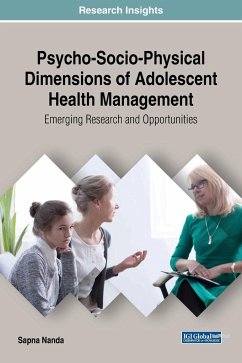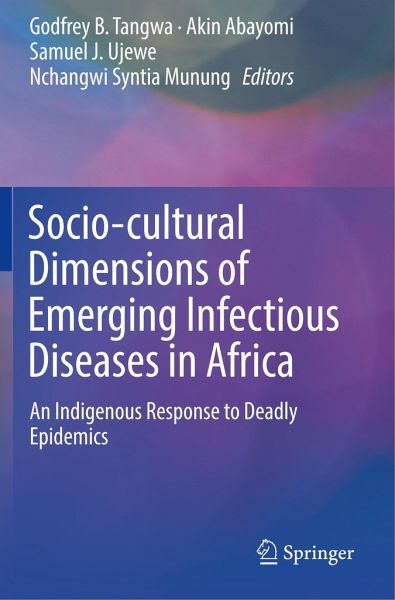
Socio-cultural Dimensions of Emerging Infectious Diseases in Africa
An Indigenous Response to Deadly Epidemics
Herausgegeben: Tangwa, Godfrey B; Abayomi, Akin; Ujewe, Samuel J.; Munung, Nchangwi Syntia
Versandkostenfrei!
Versandfertig in 6-10 Tagen
98,99 €
inkl. MwSt.

PAYBACK Punkte
49 °P sammeln!
This volume examines the most important socio-cultural, political, economic, and policy issues related to emerging infectious diseases in Africa. The volume covers the work of the Global Emerging Pathogens Treatment Consortium (GET); it looks at the challenges of science education and communication in Africa, the global health and governance of pandemics and epidemics, and more. It looks beyond such threats as Ebola, SARS, and Zika to consider the ways communities have sought to contain these and other deadly pathogens. The chapters provide a better understanding of a global health problem fro...
This volume examines the most important socio-cultural, political, economic, and policy issues related to emerging infectious diseases in Africa. The volume covers the work of the Global Emerging Pathogens Treatment Consortium (GET); it looks at the challenges of science education and communication in Africa, the global health and governance of pandemics and epidemics, and more. It looks beyond such threats as Ebola, SARS, and Zika to consider the ways communities have sought to contain these and other deadly pathogens. The chapters provide a better understanding of a global health problem from an African perspective, which help clarify to readers why some responses have worked while others have not.
Overall, the volume captures the state of the art, science, preparedness, and evolution of a topic important to the health of Africa and the world. It has a broad appeal across disciplines, from medical science and biomedical research, through research ethics, regulation andgovernance, science and health communication, social sciences, and is also of interest to general readers.
Overall, the volume captures the state of the art, science, preparedness, and evolution of a topic important to the health of Africa and the world. It has a broad appeal across disciplines, from medical science and biomedical research, through research ethics, regulation andgovernance, science and health communication, social sciences, and is also of interest to general readers.




